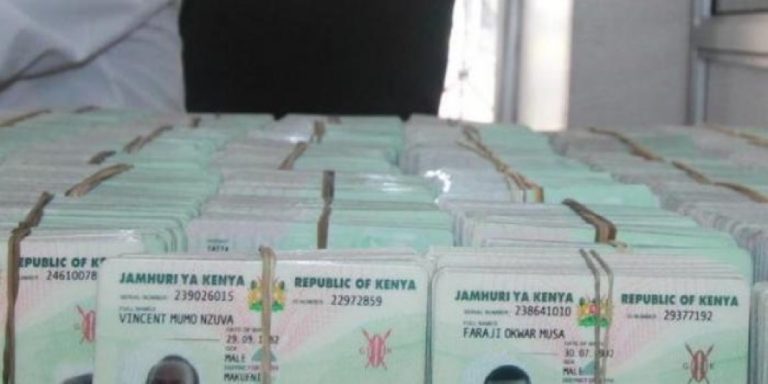Kenyans will need to renew their national ID cards every 10 years, the Principal Secretary for Immigration and Citizen Services, Julius Bitok, has announced.
In a statement issued on Monday, the PS clarified that the expiry date has no direct correlation with the general election date and dimistified the claims that dismissed claims that the expiration dates of the newly introduced Maisha Card are tied to the timing of general elections.
Bitok explained that the card’s microchip, similar to ATM cards, has a shelf life of 10 years from the date of issuance.

“The Maisha Card features a machine-readable microchip that contains relevant security features and personal details. Like other documents, such as ATM cards, the microchip has a shelf life of a maximum of ten (10) years from the date of issuance. The expiration date has no direct correlation with the general election date,” he stated.
The clarification comes after civil society organisations raised concerns over the legality and expiration dates of digital identity cards.
Bitok said that the introduction of the Maisha Card seeks to enhance the security of national identification and comply with International Civil Aviation Organisation requirements.
The government rolled out the issuance of Maisha Cards on February 23 to replace traditional IDs.
So far, 972,630 cards have been issued, with 531,329 being new applications and 441,301 duplicates.
Holders of the Maisha Card will be required to renew their IDs every ten years without undergoing new biometric registration, although updated photos will be required to reflect changes in facial features.





















